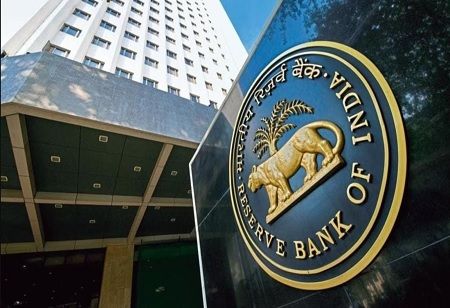
India's FinTech Sector Attracts $6 Billion in Investments Over Two Years: RBI Chief Shaktikanta Das

 India’s FinTech sector has experienced substantial growth, attracting around $6 billion in investments over the last two years, according to RBI Governor Shaktikanta Das. Speaking at the 5th edition of the Global Fintech Fest in Mumbai on Wednesday, Das highlighted the sector's significant expansion, with the number of FinTech companies in India now reaching approximately 11,000.
India’s FinTech sector has experienced substantial growth, attracting around $6 billion in investments over the last two years, according to RBI Governor Shaktikanta Das. Speaking at the 5th edition of the Global Fintech Fest in Mumbai on Wednesday, Das highlighted the sector's significant expansion, with the number of FinTech companies in India now reaching approximately 11,000.Das emphasized that India’s financial sector is undergoing a remarkable transformation, driven by the FinTech industry's rapid growth. He noted that India, a fast-growing economic powerhouse with an increasingly tech-savvy population, is witnessing this transformation at a critical time, as the country prepares for the future.
Looking ahead to India@100, Das outlined several key priorities that will shape the financial sector in the coming decades. These priorities include adapting to dynamic shifts in technology, regulation, geopolitics, and societal expectations. Das urged financial institutions and FinTech startups to adopt agile strategies and robust frameworks to capitalize on emerging opportunities while effectively managing the associated risks.
A central focus of Das's address was the importance of Digital Financial Inclusion (DFI). He stressed that while significant progress has been made in expanding financial inclusion, there is now a need to shift towards promoting secure and digitally-enabled financial services for the financially excluded and underserved populations. According to Das, DFI offers unique advantages in terms of scalability and cost-effectiveness, making it a critical component of India’s financial strategy for the next two decades.
Another key priority highlighted by Das is the deepening of Digital Public Infrastructure (DPI). He explained that DPI, which includes frameworks like Digital Identity (Aadhaar), Universal Fast Retail Payments (UPI), and targeted payment solutions such as bill payment platforms, will play a crucial role in enhancing the overall efficacy of the financial system. Das noted that these frameworks promote interoperability, transparency, and cost-effectiveness, while also addressing emerging challenges like fraud, cyber threats, and data privacy concerns. Additionally, DPI could support the integration of advanced technologies such as blockchain and artificial intelligence to further enhance security and efficiency in financial services.
Das also underscored the importance of continuous innovation in maintaining a competitive edge in the global financial landscape. He cited the Reserve Bank’s pilot project on the Unified Lending Interface (ULI) as a significant initiative aimed at harnessing technological advancements.
Furthermore, Das emphasized the need for robust consumer protection to maintain trust in the financial system. As more consumers rely on digital financial services, their expectations for personalized, efficient, and seamless experiences are growing. Das highlighted that alongside traditional risks such as mis-selling and fraud, new consumer risks related to data privacy and security breaches have emerged with the advent of new technologies. He concluded that leveraging technology for real-time monitoring and ensuring regulatory compliance will be essential in addressing these challenges effectively.